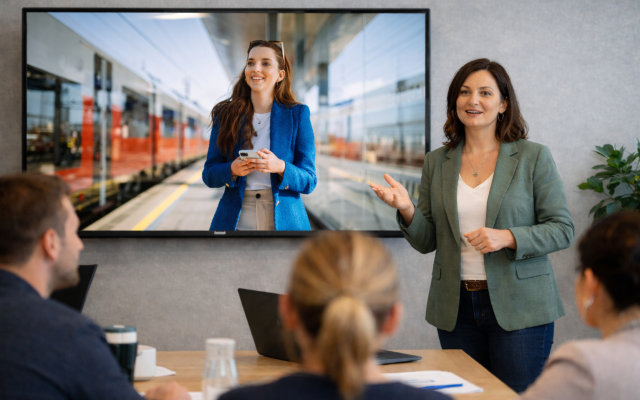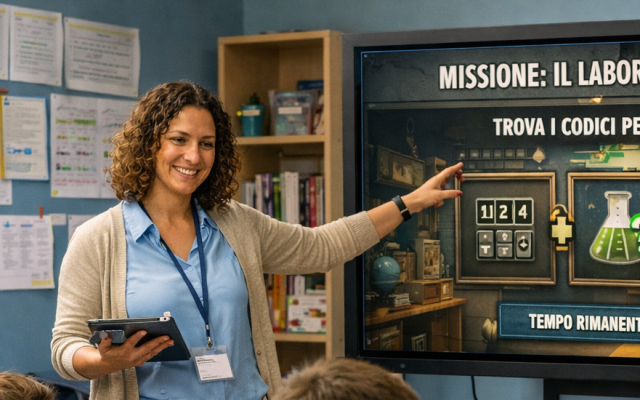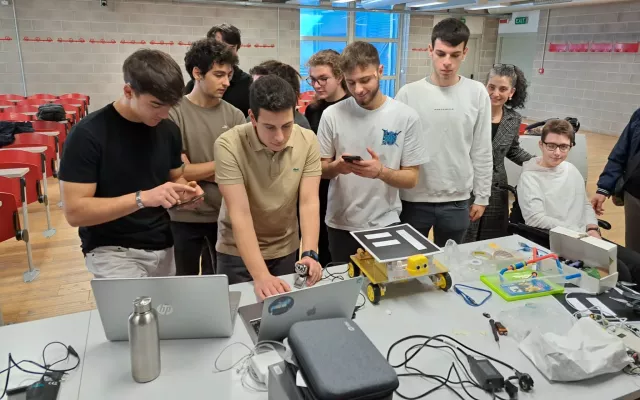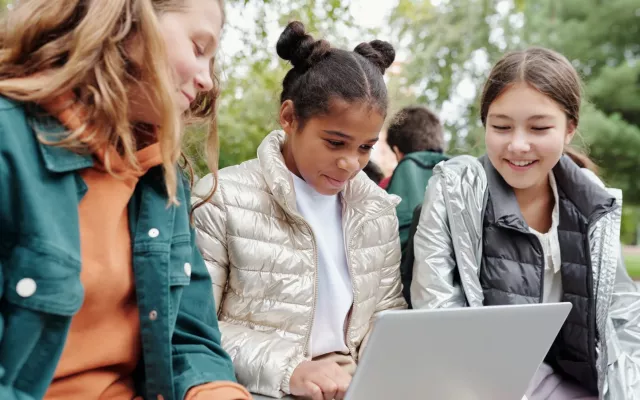Breaking Barriers: teacher “Piersoft” explains why reading numbers is a political and social act
An afternoon in the company of data, to shed light on prejudices and stereotypes, but above all to refocus attention on reading and analysing numbers as an essential skill for full digital citizenship. The online meeting on 2 July, dedicated to teachers as part of the Google.org-supported project Breaking Barriers, featured trainers Roberto Raspa and Francesco Piero Paolicelli. The latter, in particular, is an open data expert and university lecturer who has been working for years with public administrations and schools to promote transparency, digital culture and the civic use of data. He went “viral” during the pandemic thanks to his analysis of infection trends and took on the nickname “Piersoft” when he was nine years old. “I founded the first computer club in Italy and they've called me that ever since,” he says.
How do you make studying numbers fun and engaging?
"With Roberto Raspa, we organised a relay, and the meeting on 2 July started with the concept of open data, sources, maps and how to create them. Then Roberto showed how to populate spreadsheets with numbers, and finally we gave space to the workshop activity. I completed the general framework with an overview of the fields of application of data analysis, including geo-history, urban planning, accident prevention and social policies on the NEET phenomenon." Among the cases analysed, the expert cites road traffic and everything related to the movement of people and vehicles: not all Italian municipalities publish data, so planning road traffic is difficult. "Consider what has been done by the Autonomous Province of Trento, with 180 member municipalities sharing information to animate the official Visit Trentino app. This increases the area's tourist appeal: tourists now have access to a map of local markets, ski resort opening times and conditions, river levels and weather changes in the mountains. This has created an ecosystem that supports the development of the area and makes it immediately competitive with neighbouring Austria: thanks to real-time data sharing, visitors can use their tourist card to move around easily and choose the most convenient place to visit at that moment. This is how, thanks to practical examples, the lesson became an increasingly engaging discussion and exchange for the teachers connected to the course.
The approach kept everyone's attention: many teachers commented positively, a whole new world opened up to them, and they looked at an underrated but fundamental area with new eyes. Of course, this was just the first seed: 'At this stage, we have shown that tools such as data maps can be interdisciplinary and applicable to many different subjects. For example, I remember a geo-historical map of African tribes made up of dots corresponding to different content: audio, text, images. The students who created it were very knowledgeable on the topics thanks to their efforts. This is digital literacy in every sense of the word! But the issue of data and its legal and ethical aspects comes up in many cases. Consider the issue of errors made by humanoid robots used in warfare: who is to blame, the programmer or the machine? Data analysis can be used to research sources in the historical, geographical and mathematical fields. Many data journalists are humanists: consider Riccardo Saporiti, a data journalist at Il Sole 24 Ore, who has a degree in philosophy. In many cases, a humanities education allows connections to be made between subjects and disciplines that are even very distant from each other. We are asking the teaching community to consider the multidisciplinary aspects of technology, because knowledge can no longer be divided into silos'.
What role should schools play in supporting a data culture?
According to Paolicelli, there are two aspects to consider: educating citizens to enable them to grow in full awareness and refine their skills. 'All data in the world is owned by social networks, even if it concerns us, because it is used for marketing profiling and for political and social reasons. The platforms we choose to use are free, but we are the price we pay: our personal information. Today, we are bombarded with information to such an extent that an infodemic has developed, an excess that becomes background noise. Instead, there is open data, which can be used by anyone and is published by universal sources such as public bodies or Wikipedia, solely for ethical reasons, i.e. in the spirit of knowledge sharing. Citizens, and regulators in particular, must be able to use it to make decisions, such as building a cycle path or setting limits on consumer prices in a certain area to improve the quality of life in the neighbourhood. Let's take another example. A geographical map of inactive young people, produced by processing data, has revealed that certain regions have twice as many NEETs as others and therefore need very different active policies. When we are able to make good use of data provided by public sources, such as Istat and the public administration (Istat.it, dati.gov.it), we can change the destiny of our country. However, there is a lack of skills for data analysis, from creating graphs to maps, concentration and reporting! The DESI Index sees Italy in a critical position in Europe, not in terms of digital services but in terms of human capital, i.e. the ability to read data, so much so that there is great difficulty in recognising fake news. The level of Italian journalism and information sources, from social media to television, has settled into this incapacity. The indices of the most widespread and reposted fake news see Italy at the top of the list. This condition is inherited from statistics that showed functional illiteracy to be widespread in Italy twenty years ago. We need to encourage critical thinking and apply computational thinking to reality in order to gain a deeper understanding. Coding, making and data analysis enable this leap forward. In short, “know that the surface of the sea is not the sea”, as the poet Silvano Agosti said.
Good news: the Italian school system benefits from many initiatives!
"In recent years, there has been a lot of interest in data. The Ministry of Education, together with the Department for Cohesion Policies and for the South, has created the “a scuola di open coesione” (open cohesion school) project, which asks young students to present analyses of the impact of public works on the community: an excellent testing ground for training them to be informed and critical citizens. These initiatives should be exploited to the fullest. It is good to respect the school curriculum, but it is important to know how to adapt it to current events, making it a tool for the growth of young people as citizens. If topics are dealt with in a cross-curricular way, they are better understood and explored in depth. Digital tools allow for deeper learning that goes beyond a purely factual approach, in the spirit of the flipped classroom: a teaching approach that turns the traditional learning environment upside down, moving some activities, such as lectures, outside the classroom, often through online sources, to devote class time to interactive activities, problem solving and discussion. Today, schools must be more cross-disciplinary and fluid, just like society (to quote philosopher Zygmunt Baumann). It is important to work on young people's famous toolbox so that they learn to use it in an interdisciplinary way. Otherwise, there will be a disconnect between reality and the school environment.




